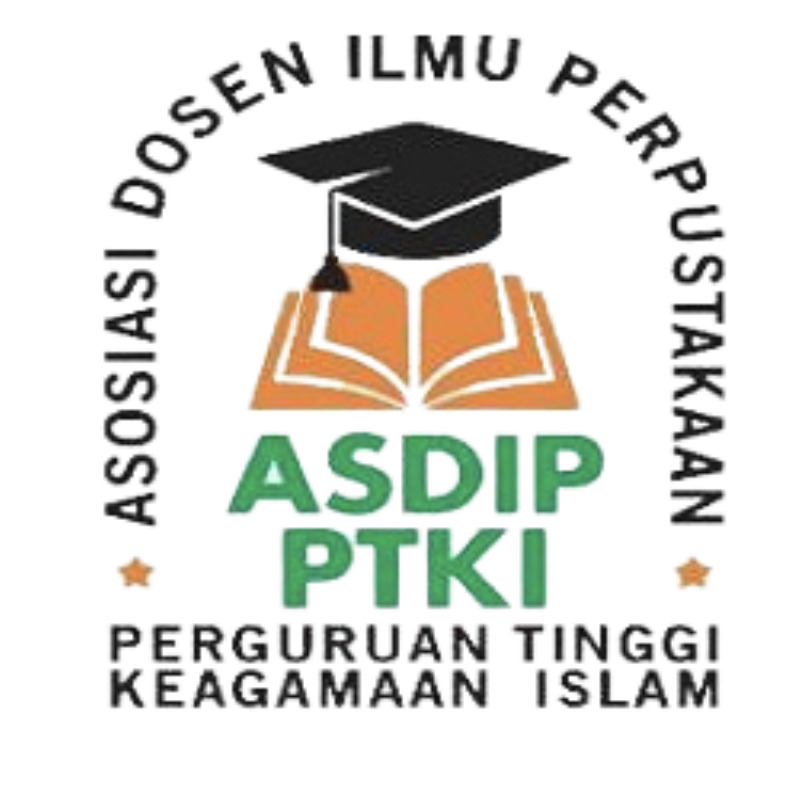Tren Layanan Referensi Virtual Studi Kualitatif Pada 12 Website Perpustakaan di Pulau Jawa
DOI:
https://doi.org/10.29240/tik.v4i2.1778Keywords:
Virtual Reference Service, Library, IndonesiaAbstract
The virtual reference service (VRS) has been implemented by some libraries in Indonesia. This study aims to identify trends in VRS in some libraries in the Java Island. This research is a qualitative study using descriptive analysis presented as a percentage, then elaborated again with narration or description associated with the field and theory. Using purposive sampling technique, selected 12 libraries to be analyzed on the website. The sample consists of public libraries and special libraries. The results form 12 library samples found to bring trends in the form of presenting referral services if sorted from the most used by the library are email (91%), web forms (75%), chat references (67%), and SMS (8%). Both email and web form used for VSR is using the library's public email. Chat references available on the web library use the Tawk Live Chat App, add on Dalet Galaxy, Whatsapp and Line. VRS in SMS form is only used by the National Library. Email is the most common format used as a communication tool in VRS followed by web forms, chat references and SMS. The results of this study can be used as material for consideration to develop format of VRS in Indonesian libraries
Downloads
References
Arwendria, A. (2019). Identifikasi Kompetensi Pustakawan Digital Berdasarkan Analisis Pekerjaan Pustakawan dari Tahun 2016-2018 di Indonesia. Jurnal Maktabatuna. 1(1), 24-38.
Arya, Harsh Bardhan., Mishra, J. K. (2012). Virtual Reference Services: Tools and Techniques. International Research. Journal of Library & Information Science. 2 (1), 102-115.
Fan, Suhua C., Welch, Jennifer M. (2016). Content Analysis of Virtual Reference Data: Reshaping Library Website Design. Journal Medical Reference Services Quarterly. 35 (3), 294-304.
Nugrahini, Nining. (2013). Layanan Referensi Dan Promosi Koleksi Referensi. Materi Pelatihan Peningkatan Mutu Tenaga Pustakawan STAH Santika Dharma Malang. Universitas Negeri Malang. Diakses 21 Mei, 2020, dari http://library.um.ac.id/images/stories/pustakawan/pdfnining/layanan% 20referensi.pdf.
Qomariyah, Astutik Nur and Kusuma, Rusdiyah Ciptaning Dwi. (2015). Analisis Transaksi E-mail dalam Layanan Referensi Virtual. Record and Library Journal. 1(2), 105-119.
Rahmi, L. (2019). Evolusi Layanan Referensi Dan Informasi Pada Perpustakaan Perguruan Tinggi. Turast: Jurnal Penelitian dan Pengabdian, 7(2), 161-176
Vardeman, Kimberly & Barba, Ian. (2015). Reference in 160 Characters or Less: The Role of Text Messaging in Virtual Reference Services. Journal Internet Reference Services Quarterly. 19 (3-4), 163-179.
Wicaksono, A. (2017). Layanan Referensi Melalui SMS: Studi Literatur. Jurnal Media Pustakawan. 24 (1), 4-11.
Wicaksono, A. (2017). Dimensi relasi dalam transaksi referensi di SMS Center Perpustakaan Nasional RI. Tesis. Universitas Indonesia.
Yang, Sharon & Dalal, Heather. (2014). Delivering Virtual Reference Services on The Web: An Investigation into the Current Practice by Academic Libraries. The Journal of Academic Librarianship. 41(1), 68-86.
Zuntriana, A. (2018). Remote Usability Testing Portal Web of Perpustakaan Nasional Republik Indonesia. Record and Library Journal, 1(1), 68-76.
Downloads
Published
Issue
Section
Citation Check
License
Authors who publish with Tik Ilmeu : Jurnal Ilmu Perpustakaan dan Informasi agree to the following terms:
- Authors retain copyright and grant the journal right of first publication with the work simultaneously licensed under a Creative Commons Attribution-NonCommercial-ShareAlike 4.0 International License (CC BY-NC-SA 4.0) that allows others to share the work with an acknowledgment of the work's authorship and initial publication in this journal.
- Authors are able to enter into separate, additional contractual arrangements for the non-exclusive distribution of the journal's published version of the work (e.g., post it to an institutional repository or publish it in a book), with an acknowledgment of its initial publication in this journal.
- Authors are permitted and encouraged to post their work online (e.g., in institutional repositories or on their website) prior to and during the submission process, as it can lead to productive exchanges, as well as earlier and greater citation of published work (See The Effect of Open Access).







 This work is licensed under a
This work is licensed under a 